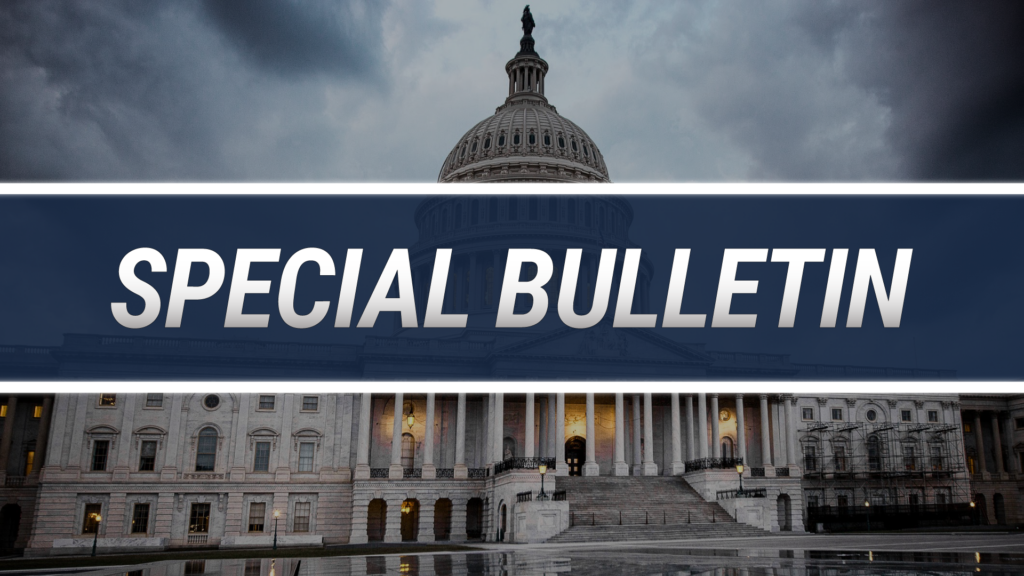
CRUSH, A DME Moratorium, OIG Audits Resume, and the PEPPER
Picture this: You are driving through an area you don’t know well. It is a cold day. You stop to get gas. You fill the

Implementation of the No Surprises Act – or NSA – continues to slowly but surely drive evolution of the healthcare landscape in the U.S.
Central to the NSA’s aim of protecting patients from unexpected medical bills are two key components of the law that have yet to be executed or enforced: the Advanced Explanation of Benefits (AEOB) and the Good Faith Estimate (GFE), both designed to provide patients with transparency and clarity regarding their medical expenses.
As a quick refresher, the NSA’s AEOB provision requires healthcare providers and insurers to furnish patients with an estimate of their out-of-pocket costs before they receive non-emergency medical care.
This preemptive disclosure is intended to empower patients to make informed decisions about their healthcare by allowing them to anticipate and plan for potential expenses, fostering a more patient-centric approach to healthcare.
Relatedly, the GFE component of the NSA mandates that healthcare providers furnish patients with a written estimate of the expected charges for scheduled services. This estimate must include the anticipated costs of medical services, as well as any associated fees from healthcare providers and facilities, enabling patients to compare prices across different healthcare providers and make informed decisions based on quality and affordability.
However, because neither of these provisions of the NSA have been implemented, neither health plans nor providers are required to comply with them, as, for the most part, enforcement of these requirements has been deferred by the Centers for Medicare & Medicaid Services (CMS) pending future rulemaking.
While Congress repeatedly presses regulators to improve and accelerate implementation efforts pertaining to the NSA, CMS recently publicized some transparency of its own in a critical update on the agency’s progress made toward AEOB and GFE rulemaking and official enactment.
Here are a few takeaways from the update that I found most illuminating:
As implementation of the No Surprises Act continues progressing, stakeholders across the healthcare industry are clearly working to streamline AEOB and GFE processes, enhance transparency, and improve the overall patient experience. But as we can plainly see from CMS’s latest update, we are still quite a ways off from standard use in the industry of the AEOB or GFE components of the law.
Nevertheless, the AEOB and GFE provisions of the NSA represent significant steps toward enhancing transparency and empowering patients in the healthcare decision-making process.
As these provisions become fully integrated into the healthcare system, the hope is that it provides patients with greater clarity and predictability regarding their medical expenses, ultimately leading to improved outcomes and experiences.
The thousand-pound question that remains is whether these hopes will ever be fully realized….and if so, when.


Picture this: You are driving through an area you don’t know well. It is a cold day. You stop to get gas. You fill the

Federal health officials have announced the launch of the Comprehensive Regulations to Uncover Suspicious Healthcare (CRUSH) initiative. The announcement was framed as a decisive step
Please log in to your account to comment on this article.

Sepsis sequencing continues to challenge even experienced coding and CDI professionals, with evolving guidelines, documentation gaps, and payer scrutiny driving denials and data inconsistencies. In this webcast, Payal Sinha, MBA, RHIA, CCDS, CDIP, CCS, CCS-P, CCDS-O, CRC, CRCR, provides clear guideline-based strategies to accurately code sepsis, severe sepsis, and septic shock, assign POA indicators, clarify the relationship between infection and organ dysfunction, and align documentation across teams. Attendees will gain practical tools to strengthen audit defensibility, improve first-pass accuracy, support appeal success, reduce denials, and ensure accurate quality reporting, empowering organizations to achieve consistent, compliant sepsis coding outcomes.

Expert presenters Kathy Pride, RHIT, CPC, CCS-P, CPMA, and Brandi Russell, RHIA, CCS, COC, CPMA, break down complex fracture care coding rules, walk through correct modifier application (-25, -57, 54, 55), and clarify sequencing for initial and subsequent encounters. Attendees will gain the practical knowledge needed to submit clean claims, ensure compliance, and stay one step ahead of payer audits in 2026.

Accurately determining the principal diagnosis is critical for compliant billing, appropriate reimbursement, and valid quality reporting — yet it remains one of the most subjective and error-prone areas in inpatient coding. In this expert-led session, Cheryl Ericson, RN, MS, CCDS, CDIP, demystifies the complexities of principal diagnosis assignment, bridging the gap between coding rules and clinical reality. Learn how to strengthen your organization’s coding accuracy, reduce denials, and ensure your documentation supports true medical necessity.

Denials continue to delay reimbursement, increase administrative burden, and threaten financial stability across healthcare organizations. This essential webcast tackles the root causes—rising payer scrutiny, fragmented workflows, inconsistent documentation, and underused analytics—and offers proven, data-driven strategies to prevent and overturn denials. Attendees will gain practical tools to strengthen documentation and coding accuracy, engage clinicians effectively, and leverage predictive analytics and AI to identify risks before they impact revenue. Through real-world case examples and actionable guidance, this session empowers coding, CDI, and revenue cycle professionals to shift from reactive appeals to proactive denial prevention and revenue protection.

In this timely session, Stacey Shillito, CDIP, CPMA, CCS, CCS-P, CPEDC, COPC, breaks down the complexities of Medical Decision Making (MDM) documentation so providers can confidently capture the true complexity of their care. Attendees will learn practical, efficient strategies to ensure documentation aligns with current E/M guidelines, supports accurate coding, and reduces audit risk, all without adding to charting time.

Join Ronald Hirsch, MD, FACP, CHCQM for The PEPPER Returns – Risk and Opportunity at Your Fingertips, a practical webcast that demystifies the PEPPER and shows you how to turn complex claims data into actionable insights. Dr. Hirsch will explain how to interpret key measures, identify compliance risks, uncover missed revenue opportunities, and understand new updates in the PEPPER, all to help your organization stay ahead of audits and use this powerful data proactively.

Stay ahead of the 2026-2027 audit surge with “Top 10 Audit Targets for 2026-2027 for Hospitals & Physicians: Protect Your Revenue,” a high-impact webcast led by Michael Calahan, PA, MBA. This concise session gives hospitals and physicians clear insight into the most likely federal audit targets, such as E/M services, split/shared and critical care, observation and admissions, device credits, and Two-Midnight Rule changes, and shows how to tighten documentation, coding, and internal processes to reduce denials, recoupments, and penalties. Attendees walk away with practical best practices to protect revenue, strengthen compliance, and better prepare their teams for inevitable audits.

As AI reshapes healthcare compliance, the risk of biased outputs and opaque decision-making grows. This webcast, led by Frank Cohen, delivers a practical Four-Pillar Governance Framework—Transparency, Accountability, Fairness, and Explainability—to help you govern AI-driven claim auditing with confidence. Learn how to identify and mitigate bias, implement robust human oversight, and document defensible AI review processes that regulators and auditors will accept. Discover concrete remedies, from rotation protocols to uncertainty scoring, and actionable steps to evaluate vendors before contracts are signed. In a regulatory landscape that moves faster than ever, gain the tools to stay compliant, defend your processes, and reduce liability while maintaining operational effectiveness.
Happy National Doctor’s Day! Learn how to get a complimentary webcast on ‘Decoding Social Admissions’ as a token of our heartfelt appreciation! Click here to learn more →
CYBER WEEK IS HERE! Don’t miss your chance to get 20% off now until Dec. 1 with code CYBER25
CYBER WEEK IS HERE! Don’t miss your chance to get 20% off now until Dec. 2 with code CYBER24